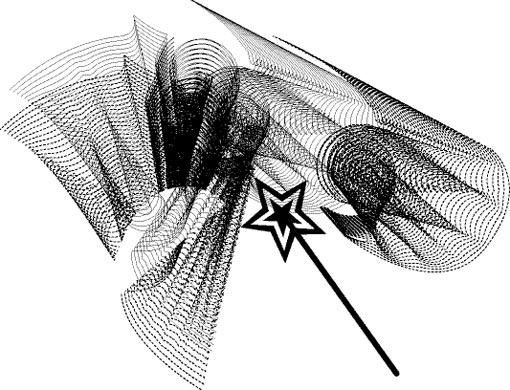The grim evidence is in, not that we had doubted its existence from the outset: After failing to anticipate Hamas's legislative victory in 2006, the White House set out to engineer what amounted to a military coup against an elected government in the Palestinian territories, all of which culminated in a bloody civil war in Gaza nine months ago.
As is well known, the US has established a long record of destabilising and finally overthrowing elected governments around the world, governments it deems not to its liking, from Mohammad Mossadegh's in Iran in 1953 to Salvadore Allende's in Chile almost exactly 20 years later.
Unlike the covert action the US mounted in those two countries, however, which achieved their end, respectively the restoration of the Shah to his thrown and the replacement of Allende's regime with the Pinochete dictatorship, what President George W. Bush, Secretary of State Condoleezza Rice and Deputy National Security Adviser Elliot Abrams cooked up in Gaza transpired as a self-defeating debacle, part Iran-contra, part Bay of Pigs.
David Rose, a contributing editor and investigative journalist for Vanity Fair, provides a detailed expose in the current issue of the magazine of how the American administration, having failed to prevent Hamas's ascendancy in the 2006 elections, later set about creating conditions in Gaza that touched off the bloody civil war last June.
With access to confidential documents and accounts from government insiders, corroborated by "outraged former and current US officials", Rose tells us: "The historical judgment will emerge quite rapidly. The machinery of the American government is going through a period of serious dysfunction. Avowed goals, such as the wish to see democracy in Palestine, are not translated into policy. I think progress with the Palestinians and Israelis is going to be more difficult to achieve as a result of the Bush administration".
The long and short of it is that the scandalously covert coup in Gaza, mounted by a US-backed force under Fatah strongman Mohammad Dahlan, and armed with new weapons supplied it at America's behest, backfired disastrously.
The Israeli blockade in recent months may have isolated Gaza, reinforcing its image as "the biggest open-air prison in the world", and triggering economic collapse and unspeakable human suffering, but Hamas continues to ride high, nine months after it took over the region. In fact, it appears that the Islamist group's popularity both in Gaza and the West Bank has soared considerably.
At the time the bloody clashes erupted in that sad strip of land, officials in Washington were blatantly declaring that this was all a coup by Hamas, whose goal was to gain exclusive power for itself, and commentators in the media, including some in the Arab media, fell for it.
Not so, writes Rose. He quotes David Wurmser, who resigned as Vice President Dick Cheney's chief Middle East adviser in July 2007, as saying that, in effect, the Bush administration at the time was "engaging in a dirty war", and that "Hamas had no intention of taking Gaza until Fatah forced its hand". Wurmser adds: "It looks to me that what happened wasn't so much a coup by Hamas but an attempted coup by Fatah that was pre-empted before it could happen."
In recent months, Bush has taken to claiming, improbably, that one of the last legacies of his administration will be the creation of an independent, viable Palestinian state. His way of going about it, however, was to overthrow a democratically elected government through resort to undemocratic, indeed thuggish, means, a policy that has failed Washington drastically and repeatedly in the past. Example: it was the CIA's "successful" ouster in 1953 of an elected prime minister in Iran that set the stage in 1979 for the emergence of the avowedly anti-American Islamic revolution there.
In the end, the clashes in Gaza, of Palestinian killing Palestinian, represented a painful spectacle not only for the people of Palestine but for other Arabs as well. Their end result was to divide the Palestinian movement, indeed Palestine itself, into two antagonistic halves.
The one half is economically destitute, where the ordinary Gazan reputedly lives on roughly $1 a day (at the start of 2007, for example, there were 400 factories and workshops there, but with the start of the Israeli blockade, 90 per cent of them closed), and the other half in the West Bank is pathetically dependent on short-term patch and mend measures by the Abbas government and the dictates of a brutal occupation whose functionaries, soldiers and colonists will just not go away.
Concluding his piece, David Rose writes: "How could the US have played Gaza so wrong? Neo-con critics of the administration -- who until last year were inside it -- blame an old State Department vice: the rush to anoint a strongman instead of solving problems directly. This ploy has failed in places as diverse as Vietnam, the Philippines, Central America, and Saddam Hussain's Iraq, during its war against Iran.
"To rely on proxies such as Mohammad Dahlan, says former UN ambassador John Bolton is 'an institutional failure, a failure of strategy'. Its author, he says, is [Condoleezza] Rice 'who, like others in the dying days of this administration, is looking for a legacy'."
It's all tawdry. It's also a moral outrage, people.
Fawaz Turki is a veteran journalist, lecturer and author of several books, including The Disinherited: Journal of a Palestinian Exile. He lives in Washington D.C.











